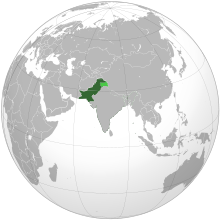Will Democracy Prevail In Pakistan? – Analysis
By IPCS
By Radha Vinod Raju
President Asif Ali Zardari and his Prime Minister Yusuf Raza Gilani are having a pretty tough time in Pakistan-just to survive the consequences of ‘Memogate’. The allegation of businessman MansoorIjaz that he had prepared the memo on the instructions of Pakistan’s US Ambassador Hussain Haqqani and had the clearance from the very top, is yet to be proved, but it has shaken the country as nothing else has in recent times. Haqqani was summoned by his government and then resigned, though he claimed he had nothing to do with the memo and was prepared to face any enquiry. The memo was an alleged plea from President Zardari, soon after the US’ secret operation of 2 May 2011 in Abbotabad which ended with the killing of Osama bin Laden showing the Pakistan military in poor light, for help from the US military to stave off a military coup in his own country.

The Pakistani Army appeared complicit in keeping bin Laden, the world’s most wanted terrorist, hidden from the rest of the world in a safe house a mile from their military Academy, and sleeping when the US’ Seals flew into Abbotabad and slewed him. Zardari allegedly feared that the Army’s reaction to the humiliation would be a coup against his government. The alleged memo was a plea from the civilian government to the US to prevent the coup, in return for which there would be an “independent and accountable inquiry” into the Osama bin Laden raid, setting up a new “national security team” to support the decisions of the US administration, giving a “green light” for future US kill-or-capture operations on Pakistani soil, disbanding and eliminating certain units within the ISI and arresting those from Pakistani intelligence agencies who allegedly masterminded or supported the Mumbai attacks.
While the civilian government ordered an enquiry by a Parliamentary panel on security into the scandal, several petitions, led by Nawaz Sharif’s Pakistan Muslim League, were filed in the Supreme Court for a judicial enquiry. In response to the Supreme Court’s notice, the government took a stand that there was no need for the court to intervene as an enquiry was on by the Parliamentary panel. In an unprecedented move, the Army Chief, General Parvez Kayani and his ISI Chief General Shuja Pasha, took a diametrically opposite stand, without prior clearance from the government, asking for an enquiry into the Memogate scandal on the ground that the memo does exist. The Ministry of Defence, headed by another retired general, without clearance of the Defence Minister, said that they have no operational control over the Army and its operations. There were rumours following the stand of the generals that the Army Chief and the ISI Chief were about to be replaced by the government. These rumours have since subsided. And the Supreme Court has now ordered an enquiry by a Commission consisting of three Chief Justices of High Courts into the scandal directing them to submit their report in a month’s time.
When the Army and the ISI appeared on losing ground following the American raid in Abbotabad, the Prime Minister had rushed to their rescue by blaming the whole world for not locating Osama bin Laden in the Army’s backyard! That was the moment to call the Army to account, and try for civilian control over the armed forces. Having lost this defining moment, Gilani lost the best opportunity that the civilians had of taking control of the Army. Once again, after the American/NATO attack on the Pakistani posts killing 24 Pakistani soldiers, Gilani meekly followed the Army’s script, stalling NATO supplies passing through Pakistan, asking the Americans to clear out of Shamsi base and boycotting the Bonn Conference on Afghanistan.
It appears that the Chief Justice of the Supreme Court holds important cards-his relations with President Zardari cannot be said to be cordial ever since the latter’s dilly dallying in reinstating the Chief Justice after assuming power in Pakistan. While the Army has its own problems dealing with militants and a hostile western boundary, and is yet to recover from the shock of the American intrusion into Abbotabad, it appears that they are not interested in a coup which can increase their problems. It is reported that they are backing the rising new star in Pakistan, Imran Khan.
A finding by the Judicial Commission that there was a memo as claimed by MansoorIjaz, giving it credibility, could be the last straw on the camel’s back, forcing Zardari’s resignation, and elections in Pakistan. There is a strong view in the country that the politicians were ready to sell out Pakistan’s security to the Americans for their survival.
The political leadership has failed to earn any credit for itself in the last four years since it came to power. When Pakistan had unprecedented floods a couple of years back, Zardari was holidaying in his villa in Paris, while the Army and the Jamaat-ud-Dawa volunteers took care of the victims of the floods. The principal focus of the politicians appeared to be survival, and completion of their five year term-governance was not their concern. If democracy finally loses out, politicians in Pakistan will have none other than themselves to blame.
Radha Vinod Raju
Distinguished Fellow, IPCS and Former Director General, National Investigation Agency (NIA)
email: [email protected]
